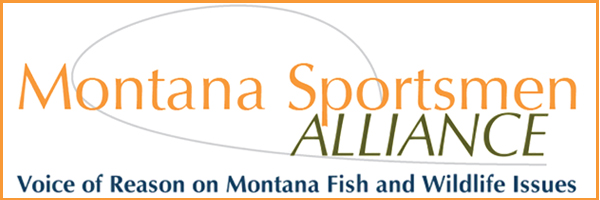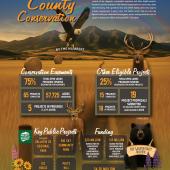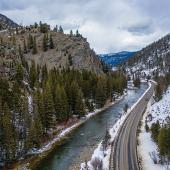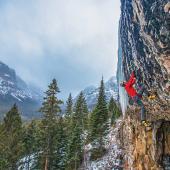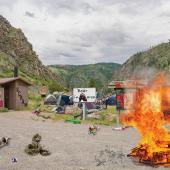Racket Club
A highlight reel from the 2025 state legislature.
If you paid the slightest bit of attention to this year’s legislative session, you know that Montana was faced with a few doozies. From threats of slashing conservation funding to the increasing danger of a mass public-land sell-off, there was no shortage of bills to oppose. But on the other hand, a number of ’em made the push in the other direction, advocating for stewardship and land access, giving public landowners some encouragement that we elected officials who indeed are working to serve our best interest. Here’s a brief rundown on the good and the bad.
Thumbs-Up:
HB 763 — Passed
Brought to light by Representative Joshua Seckinger (D-Bozeman), HB 763 amends the state Block Management Program to compensate voluntary private landowners who allow access through their lands to adjacent public lands. Until now, the program has only rewarded property owners that allow public hunting on their lands. This bill provides an additional way for private landowners to get involved, and get reimbursed by doing so.
HB 855 — Passed
Finally—a legislative attempt to deal with Montana’s wildlife-vehicle collision problem (for more on the issue, read “Unsafe Passage,” O/B Spring 2024). Sponsored by Katie Zolnikov (R-Billings), the bill authorized a specialty license plate, with all revenue going to a highway wildlife-crossing account. Obviously, selling $20 license plates isn’t going to pay for multi-million-dollar projects, but the designated account is a step in the right direction. Now we just need to figure out how to get more money into it, especially via federal grants designed for these kinds of projects, as well as private donations (we’re looking at you, Yellowstone Club).
HB 932 & SB 537 — Passed & Vetoed
Both these bills address how money earned from our state’s marijuana tax is allocated. HB 932, introduced by Ken Walsh (R-Twin Bridges), would have secured permanent funding for a Habitat Montana account, which currently receives 20% of the annual tax revenue from selling weed. However, SB 537 (introduced by Daniel Zolnikov, R-Billings) renamed it the “Habitat Legacy” account and broadened the appropriate uses of the money. It also redirects a large chunk of tax revenue away from the state’s general fund, repurposing it for law enforcement and substance-abuse programs. The big kicker, though, is that SB 537 contained a provision voiding HB 932 if both laws were passed—which is exactly what happened. Still, wildlife groups are optimistic that this bill will create more flexibility in tackling a broader range of high-priority projects in the state.
From threats of slashing conservation funding to the increasing danger of a mass public-land sell-off, there was no shortage of bills to oppose.
Thumbs-Down:
SB 307 — Failed
Perhaps the worst bill introduced in the entire 2025 legislature, SB 307 intended to reallocate the revenue collected from the Marijuana Tax Fund & Habitat Montana (the same ones dealt with in HB 932 & SB 537), to the governor’s personal slush fund. Senator Tom McGillvray (R-Billings) clearly wasn’t paying attention to Montana voters when, in 2020, we voted to legalize marijuana, tax it by 20 percent, and direct nearly a quarter of those funds to wildlife conservation. Thankfully, the bill was killed in the beginning of April. Keep an eye out for a similar version to reappear next session and be prepared to contact our representatives to stop it in its tracks yet again.
HB 676 — Vetoed
Though dealing only with water rights in its final version, HB 676 originally sought to mandate the sale of over one million acres of state lands in Montana to current lease-holders. These parcels were “isolated and inaccessible” according to the bill’s sponsor, Brandon Ler (R-Savage). Dozens of outdoor organizations opposed the proposition, arguing that state lands account for millions of dollars of annual revenue toward schools, guaranteed wildlife habitat, and affordable grazing fees to ranchers. The revised version, vetoed, mentioned nothing about the sale of state land, but instead prohibits the Board of Land Commissioners from obtaining ownership of private water rights that are used on state lands.
HJ 24 — Failed
Representative Tom Millet (R-Marion) showed Montana his true colors when he introduced the very un-American House Joint Resolution 24 which would have supported Utah’s claim that federally-owned “unappropriated public lands” are unconstitutional (for background, read the article “Land Grab,” O/B Winter 2024-25). Luckily, the resolution was trounced 66-34 on the House floor in early April. However, this should serve as a warning call to seriously consider who we elect as our representatives. Come the next election cycle, any candidate that openly endorses this sort of ideology should be allowed nowhere near office, and instead be publicly pilloried in the streets.
HB 354 — Passed
This bill, introduced by Representative Jill Cohenour (D-Helena) is pretty straightforward: anyone convicted of criminal trespass while hunting, fishing, or shed hunting must have their license revoked for up to two years. The word “must” replaces the previous wording of “may” in the state law, removing the ability of a judge to use discretion when sentencing someone for trespass. Yes, it’s the responsibility of hunters and anglers to know where they stand; but even so, property boundaries aren’t always perfectly translated onto maps, so mistakes can happen—and now violators will lose their licenses regardless of the circumstances. Other criminal acts distinguish between intentional and accidental commission (e.g., first-degree murder vs. involuntary manslaughter); why should trespassing be any different?




